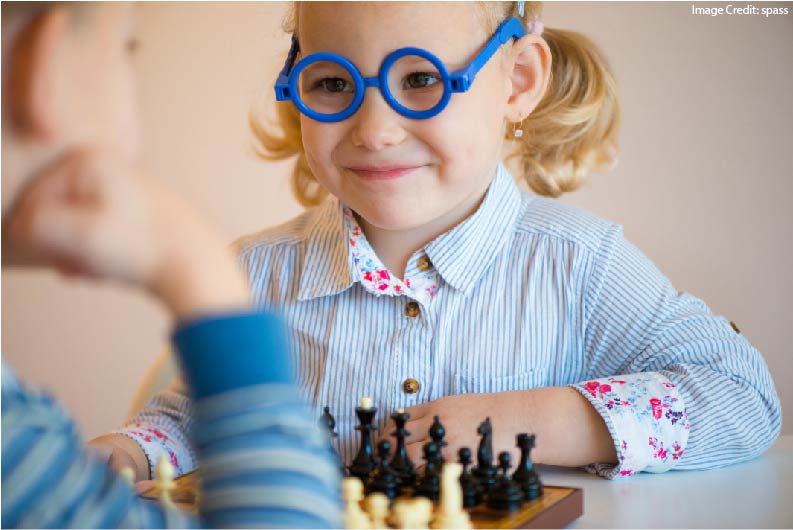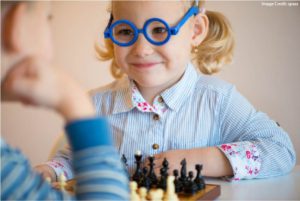
Why do chess experts win more chess matches than novices?
This question has a perfectly straightforward answer: they know more about chess. Obviously.
Forty-five years ago, William Chase and Herbert Simon tested another hypothesis. Perhaps, they speculated, chess experts see the world differently than do chess novices.
They don’t just think differently. The literally see differently. Their chess knowledge changes their perception.
Sure enough, as Chase and Simon predicted, chess experts see chess boards as meaningful groups of chess pieces.
This chess board shows a modified French Dragon Attack.
That chess board shows a King-and-Bishop vs. King-and-Rook problem.
Chess novices, however, see chess boards as scatterings of individual pieces.
This chess board shows…a bunch of pieces.
That chess board shows…a different bunch of pieces.
Because the expert sees a different chess board, she sorts through her possible moves much more efficiently. And: she’s likelier to win the game.
Expert Teacher Vision: Are Experienced Teachers Like Chess Grand Masters?
Does this finding hold true for teachers? Does expert teacher vision differ from that of novice teachers?
Charlotte Wolff (and others) explored this question in a study that used eye-tracking software to understand where teachers look.
Sure enough, they found that expert teachers look at classrooms differently.
For instance: expert teachers “appear to be searching for activity between students,” even “following posture and body movements.”
Novices, on the other hand, focus on irrelevant details: for example, a student’s “fluorescent green shoelaces.”
When you look at the photos in the study, you’ll see that novices spend a disproportionate amount of time looking at unimportant details. A painting on the wall. People walking by in the hallway. Even an electrical outlet oddly placed in the wall.
Expert Teacher Vision: Eyes and Words
Intriguingly, Wolff & Co found that experienced teachers used different words to describe what they saw. In particular, they commented more frequently on feelings, and on the events happening in the room.
For my taste, this part of the study needs further elaboration. I’d love to hear about they ways that experts describe their classrooms differently from novices.
Here’s why.
A novice teacher might reasonably ask this question: “How do I train myself to have expert teacher vision?”
The likeliest answer is: practice, practice, practice. We don’t know many good shortcuts for developing expertise. It just takes time.
However, if we knew more about the words that experts use, we might train new teachers to speak and think that way when they comment on classrooms. These verbal habits — a kind of deliberate teacherly practice — just might help novice teachers hone their visual skills.





